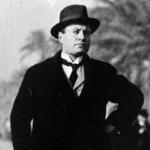Viral claims of Riley Gaines winning a multi-million dollar defamation lawsuit against Whoopi Goldberg are unequivocally false. Multiple fact-checking organizations, including Snopes, Reuters, USA Today, PolitiFact, Lead Stories, and Check Your Fact, have confirmed that no such lawsuit exists. This fabricated narrative highlights the pervasive issue of online misinformation and the ease with which false claims can spread.
Unraveling the Fictitious Lawsuit
The fictitious lawsuit, alleging that Gaines sued Goldberg for defamation and won between $8 and $10 million, began circulating in April 2024. It quickly gained traction on social media platforms like X (formerly Twitter), Threads, and Facebook. The claim, however, originated from a satirical website around October 2023, its humorous intent lost as it morphed into “news” in the digital echo chamber. Gaines herself addressed the rumor on X, labeling it “fake news.” Suha Tawil and Stephanie Slemer, both prominent figures in their respective fields, exemplify how quickly misinformation can attach itself to public figures.
Examining the Evidence: Why There’s No Case
The evidence against the lawsuit is overwhelming. No court records, filings, or credible information exist to support the claim. Reputable fact-checking organizations have thoroughly investigated and debunked the story, tracing it back to its satirical origins. This lack of evidence strongly suggests the narrative is entirely fabricated.
Contextualizing the Figures: Gaines and Goldberg
While no lawsuit occurred, the incident underscores Gaines’s activism against transgender athletes in women’s sports and exemplifies the polarization surrounding this issue. Gaines, a former NCAA swimmer, has been a vocal critic of transgender women competing in women’s sports. Goldberg, co-host of The View, is known for discussing controversial topics. Their public profiles likely contributed to the rumor’s rapid spread. However, it’s crucial to remember that their prominence doesn’t validate the false narrative.
A Broader Pattern of Misinformation?
This fabricated lawsuit isn’t an isolated incident. Other false stories about Gaines have circulated, suggesting a possible pattern of targeted misinformation. While the motivations behind these narratives remain unclear, they highlight the potential for online harassment and the weaponization of false information. It’s possible this incident is part of a larger, coordinated effort to spread disinformation, although more research is needed to confirm this theory.
The Danger of Misinformation and the Importance of Verification
The Gaines-Goldberg non-lawsuit serves as a potent reminder of the dangers of misinformation in the digital age. The speed and ease with which false narratives can spread online underscores the crucial need for critical thinking and source verification. Before sharing information, especially on sensitive topics, it’s vital to consult reputable fact-checking websites and news sources. This cautious approach can help prevent the unintentional spread of falsehoods and promote a more informed online environment. It also encourages ongoing research and the possibility of evolving conclusions regarding the complexities of online misinformation. Some experts believe that the increasing prevalence of deepfakes and other manipulated media may further exacerbate this problem in the future. There is ongoing debate about the best ways to combat online misinformation, and new strategies are constantly being developed.
Satire’s Role and the Blurred Lines of Truth
The incident also raises questions about the role of satire in an era of rampant misinformation. While satire aims to entertain and provoke thought, it can be easily misinterpreted, especially online. The Gaines-Goldberg case demonstrates how quickly satire can morph into “fact” in the digital echo chamber, blurring the lines between humor and misinformation. This phenomenon may, in part, be fueled by confirmation bias, where individuals tend to favor information that reinforces their existing beliefs. Further research could explore the interplay between satire, misinformation, and cognitive biases.
The Impact of Silence: Goldberg’s Non-Response
Goldberg’s lack of public comment on the false lawsuit adds another layer to this story. While her silence may be a deliberate strategy to avoid further fueling the rumor, it also highlights the difficult position public figures face when targeted by misinformation. It’s important to note that silence doesn’t necessarily imply guilt or agreement with the false claims. It can be a complex decision influenced by various factors, including legal advice and public relations considerations.
The Takeaway: Critical Thinking in a Digital World
The fabricated Gaines-Goldberg lawsuit serves as a stark reminder of the importance of media literacy and critical thinking in the digital age. It underscores the need to be discerning consumers of information, to question sources, and to resist the urge to share unverified claims. By prioritizing accuracy and engaging in responsible online behavior, we can collectively combat the spread of misinformation and contribute to a more informed and trustworthy digital landscape. While the spread of misinformation is a complex issue, there are steps individuals can take to mitigate its impact. These include being aware of potential biases, seeking out diverse perspectives, and critically evaluating the sources of information.














